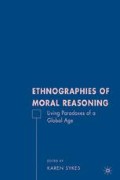Abstract
In 2001, on a trip to Shanghai I visited the city’s well-known Xiangyang market—famous for its quality replica of Western designer clothes and bags that were hugely popular with locals and Westerners alike. Burberry scarves and umbrellas, Versace sunglasses, Gucci bags, as well as the newest Hollywood blockbusters on DVD were all on offer; and young and chic Shanghainese roamed the stalls in search of the latest fashion statement. Xiangyang market was different from other forms of selling “fakes” in China in that every customer who came here, with maybe the exception of the most naïve foreigners, knew that he or she was buying not an original but a replica, and valued the accessibility also for those with a small budget to one of the most important forms of cultural capital in post-Maoist China— the ownership of mingpai (famous brand commodities). Although the goods on offer were of a strikingly high quality, what made the sale of replica “honest” to everyone were not only the low prices, but also the setting that stood in such contrast to a designer outlet that no one could possibly be duped: a vast flat of mud, covered with small stalls and stands sheltered by plastic covers, and with women and men who were clearly of working class or peasant background selling the goods.
Access this chapter
Tax calculation will be finalised at checkout
Purchases are for personal use only
Preview
Unable to display preview. Download preview PDF.
Bibliography
An, Yanming. 2004. “Western ‘Sincerity’ and Confucian ‘Cheng.’” Asian Philosophy, Vol. 14, No. 2, 155–69.
Anagnost, Ann. 1989. “Prosperity and Counterprosperity: The Moral Discourse of Wealth in Post-Mao China.” In Marxism and the Chinese Experience, edited by A. Dirlik and M. Meisner. 210–34. Armonk: M.E. Sharpe.
Anagnost, Ann. 1997. National Past-Times: Narrative, Representation, and Power in Modern China. Durham: Duke University Press.
Anagnost, Ann. 2004. “The Corporeal Politics of Suzhi in China.” Public Culture, Vol. 16, No. 2, 189–208.
Bakken, Børge. 2000. The Exemplary Society: Human Improvement, Social Control and the Dangers of Modernity. Oxford: Oxford University Press.
Brandtstädter, Susanne. 2006. “Muddled Modernities in ‘Peasant China.’” In ESRC Centre for Research on Social and Cultural Change Working Paper.
Brandtstädter, Susanne. Forthcoming. “Law, Popular Religion, and the Moral Economies of Political Representation in China.” In Permutations of Order: Religion and Law as Contested Sovereignties edited by T. Kirsch and B. Turner. Aldershot: Ashgate.
Davis, Deborah S. 2000. The Consumer Revolution in Urban China. Berkeley, CA: University of California Press.
Dorfman, Diane. 1996. “The Spirits of Reform: The Power of Belief in Northern China.” Positions, Vol. 4, 253–89.
Duara, Prasenjit. 1998. “The Regime of Authenticity: Timelessness, Gender and National History in Modern China.” History and Theory, Vol. 38, No. 3, 287–308.
Feuchtwang, Stephan. 2002. “Remnants of Revolution in China.” In Postsocialism: Ideals, Ideologies, and Practices in China, edited by C.M. Hann. 196–214. London: Routledge.
Feuchtwang, Stephan, and Mingming Wang. 2001. Grassroots Charisma: Four Local Leaders in China. London: Routledge.
Gao, Yuan. 1987. Born Red: A Chronicle of the Cultural Revolution. Palo Alto: Stanford University Press.
Graeber, David. 2001. Towards an Anthropological Theory of Value: The False Coin of Our Own Dreams. New York: Palgrave.
Gregory, Christopher A. 1997. Savage Money: The Anthropology and Politics of Commodity Exchange. Amsterdam: Harwood Academic.
Hart, Keith. 1986. “Heads or Tails? Two Sides of the Coin.” Man, Vol. 21, No. 4, 637–56.
Hooper, Beverley. 2005. “The Consumer Citizen in Modern China.” In Working Papers Centre for East and South-East Asian Studies, Lund University. 1–24.
Keane, Michael A. 2001. “Redefining Chinese Citizenship.” Economy and Society, Vol. 30, No. 1, 1–17.
Kipnis, Andrew B. 1995. “Within and Against Peasantness: Backwardness and Filiality in Rural China.” Comparatives Studies in Society and History, Vol. 37, No. 1, 110–35.
Myers, Fred R. 2001. “Introduction: The Empire of Things.” In The Empire of Things: Regimes of Value and Material Culture, edited by F.R. Myers. 3–61. Oxford: James Curry.
Notar, Beth. 2006. “Authenticity Anxiety and Counterfeit Confidence: Narrating Value in Reform-era China.” China Journal, Vol. 32, No. 1, 64–98.
Pun, Ngai. 2003. “Subsumption or Consumption? The Phenomenon of Consumer Revolution in ‘Globalizing’ China.” Cultural Anthropology, Vol. 18, No. 4, 469–92.
Schoenhals, Michael. 1991. “The 1978 Truth Criterion Controversy.” The China Quarterly, Vol. 126, 243–68.
Wang, Mingming. 1995. “Place, Administration, and Territorial Cults in Late Imperial China: A Case Study from South Fujian.” Late Imperial China, Vol. 16, No. 1, 33–78.
Yan, Hairong. 2003. “Neoliberal Governmentality and Neohumanism: Organizing Suzhi/Value Flow through Labor Recruitment Networks.” Cultural Anthropology, Vol. 18, No. 4, 493–523.
Yan, Yunxiang. 1996. The Flow of Gifts: Reciprocity and Social Networks in a Chinese Village. Palo Alto: Stanford University Press.
Yan, Yunxiang. 2000. “The Politics of Consumerism in China.” In China Briefing, edited by T. Whyte. 159–93. Armonk, N.Y.: M.E. Sharpe.
Editor information
Copyright information
© 2009 Karen Sykes
About this chapter
Cite this chapter
Brandtstädter, S. (2009). Fakes: Fraud, Value-Anxiety, and the Politics of Sincerity. In: Sykes, K. (eds) Ethnographies of Moral Reasoning. Palgrave Macmillan, New York. https://doi.org/10.1057/9780230617957_6
Download citation
DOI: https://doi.org/10.1057/9780230617957_6
Publisher Name: Palgrave Macmillan, New York
Print ISBN: 978-1-349-37625-4
Online ISBN: 978-0-230-61795-7
eBook Packages: Palgrave Social & Cultural Studies CollectionSocial Sciences (R0)

